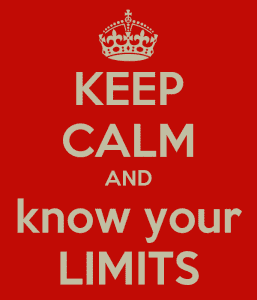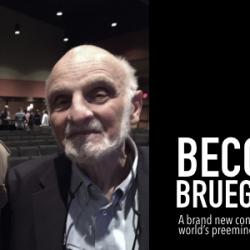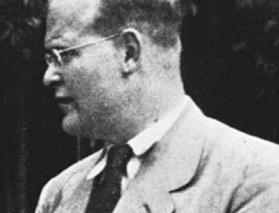 As I’ve been reflecting upon my year in 2013 there’s no doubt in my mind that it was the most difficult and the most painful year of my life. I’ve said more funeral liturgies, dealt with more personal challenges, experienced more wounding from relationships, faced more demanding professional circumstances, delved into new territory in terms of parenting, ego work, writing, pace of life, and stress than ever before. I know that everyone deals with all of these things, and I’m not complaining. I’m just trying to tell the truth about my life. And when I look back at my year, those are the things I see. It was rough. I’m hope it’s over.
As I’ve been reflecting upon my year in 2013 there’s no doubt in my mind that it was the most difficult and the most painful year of my life. I’ve said more funeral liturgies, dealt with more personal challenges, experienced more wounding from relationships, faced more demanding professional circumstances, delved into new territory in terms of parenting, ego work, writing, pace of life, and stress than ever before. I know that everyone deals with all of these things, and I’m not complaining. I’m just trying to tell the truth about my life. And when I look back at my year, those are the things I see. It was rough. I’m hope it’s over.
One of the major lessons I’ve had to return to over the past season of life is the wisdom of limits. In the midst of a year that felt like a personal gut punch was coming every two or three weeks, I began to see how my own limitations, the limitations of others, and of nature contain a deep wisdom about life, and what it means to be a human being.
Limits exist for our own good. If you plow a field every year without letting it rest, it will stop yielding a good crop. If you dump fertilizer on it to keep it going the bugs will come. If you dump pesticide on top of the fertilizer then you will begin to damage the rivers and ground water, not to mention the food. One decision on top of the other adds to the complexity and trouble. The tenacious drive to live in a world without limits has created mess after mess. It is perhaps the defining characteristic of the American experience: no limits.
THE LIMITS OF WISDOM: Solomon was said to be the wisest man on the planet during his time. He was revered as having a deep kind of understanding or intuition about life and people. Yet, with all of that wisdom at his fingertips, Solomon was never able to control his own appetites. Think of the way Solomon attempted to meet his limitless desire:
- Sex: he amassed a harem of a thousand wives and concubines.
- Identity: he changed the organizational structure of Israel, erasing tribal identity, reorganizing everyone into tax districts. This created citizens out of what was previously a tribe or a family.
- Bureaucracy: all power was concentrated into a system Solomon controlled.
- Violence: he created Israel’s first ever standing army, and was the first king of Israel to coerce his own people through violence.
- Intellect: Solomon collected smart and wise people, functionally controlling the information of the day.
- Labor: Solomon created his own personal labor force to build the royal palace and other projects. (List comes from W. Brueggemann’s The Prophetic Imagination.)
Solomon may have been this wisest of his time, but his wisdom was no match for his limitless desires. Wisdom was not enough. In the end, Solomon not only wrecked his life, he derailed his entire people.
THE WISDOM OF LIMITS: The attempt to live our lives without limits will naturally produce the kind of problems we see prevalent in our society: anxiety, stress, health problems, addiction, exhaustion, even things like violence, greed, dishonesty, crime, selfishness, and fear – even pollution, climate change, famine, war, and so on. These are the things we can count on happening if we attempt to ignore our own limits, and the limitations of the world.
The great confusion which fuels our drive to avoid any and all limits centers on our understanding of the word freedom. We have been taught to believe that freedom means choice. We are free when we can make our own choices, be anything we want to be, and do anything we want to do as long as we don’t hurt anyone. But this is not freedom. Freedom comes with the ability to be who we are, and this means learning to know and respect natural limits. I can’t be anything I want to be. I can only be me. If I want to know peace, then I can only be (and do), what God has asked me to do with my time in this world. This is simultaneously a limitation, and complete freedom; freedom from having to be what you want me to be, from having to be or do what everyone else is doing, and so on.
As human beings, our job is not to conquer all, or to meet our own limitless desire. Our job is to see, respect, and live in harmony with the world as it has been created. Our job is to listen to our lives, and respect what we hear from God through them. This means that the respecting of limits requires a kind of reverence. Reverence is not so much an attitude, as it is a fundamental approach to the world in which we are living. Reverence is the ability to see the beauty in everything, without succumbing to our desire to possess it. Barbara Brown Taylor once wrote, “Human beings have a hard time regarding anything beautiful without wanting to devour it… the same instinct drives compulsive shoppers, promiscuous lovers, and petty thieves.”
Reverence fuels our healthy sense of our own God given limitations, allowing us to really see the world around us without having to own it, devour it, or control it. That’s the kind of freedom for which our soul is longing. When I look ahead to 2014 I feel as though, whatever comes my way, I need to be mindful of limits, and living with reverence.












